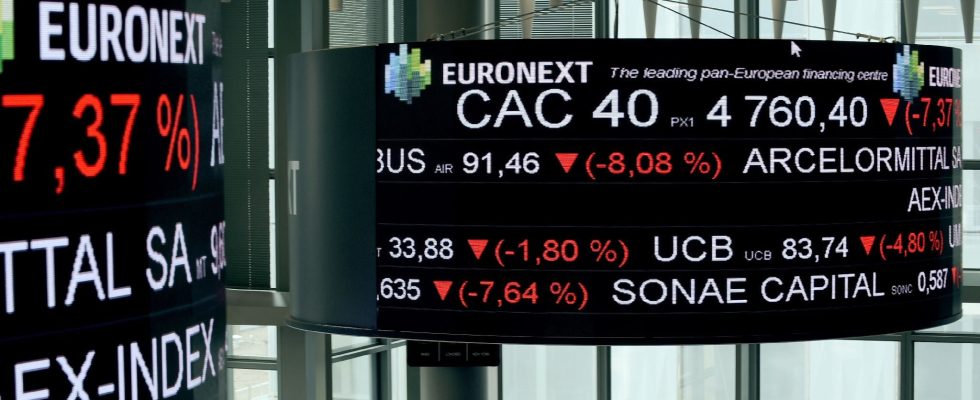A new record on the Paris Stock Exchange. The CAC 40 reached 7,582.11 points in the morning, beating its previous record dated April 24. Since its last low point at the end of October, the stock index has jumped more than 11%. It has increased by 16.88% since the start of the year.
The industrial sector, driving force of the increase
Among the most notable performances of the index since January 1, Stellantis has seen its share jump almost 60%, Safran gains more than 40% and Hermès, almost 40%. “The industrial sector is being driven by a catch-up phenomenon since it did not benefit from the post-Covid rise in stocks,” comments Christopher Dembik, investment strategy advisor at Pictet AM, to AFP.
Furthermore, the luxury sector is “holding up well” and remains “still buoyant” despite half-year results “considered by the market to be lower than expected”, adds the analyst. In ten years, the weight of luxury in the CAC 40 has multiplied by almost 2.5, going from 10.2% at the end of 2012 to 25.3% on April 14, according to data fromEuronext. A development largely driven by LVMH, which today represents 13.2% of the index, approaching the ceiling set at 15% for a single company, compared to barely 5% a decade earlier.
Change in monetary policy expectations
Expectations of monetary policies more favorable to economic activity on the part of central banks also boosted the index. “Today, rightly or wrongly, the market considers that we will have a cycle of rate cuts starting next year, and above all at the same pace [que lors des cycles de baisse constatés par le passé]”, continues Christopher Dembik.
To contain the surge in prices, the American Central Bank (Fed), which is holding its last meeting of the year on Tuesday December 12 and Wednesday December 13, has raised its interest rates 11 times since March 2022, bringing them to their highest high level for twenty-two years, in a range of 5.25 to 5.5%. The European Central Bank, for its part, carried out 10 rate increases in a row to bring the main rate to the historically high level of 4%. The slowdown in job creation and wage inflation in the United States in November supports the scenario of a soon more accommodating Fed.
The risk of precipitation
“The fact that the market anticipates that central bank rates can fall without having gone through a phase of recession in the economy has had a direct impact on the bond market, explains Christopher Dembik, and this means that the market does not anticipate no risk to the economy.” The stock markets have regained strength since the end of October, driven by the easing of borrowing rates by States, particularly France.
Investors are moving more easily towards “riskier investments, typically stocks,” he adds. The flagship index of the Frankfurt Stock Exchange, the DAX, is also in a race for records, having reached its all-time high on Wednesday. Over the year, this stock index jumped by more than 20%. “Market expectations are ambitious,” judges Alexandre Baradez, head of market analysis at IG France, with BFM Bourse. The risk being that the recent rise in the stock markets was caused by too hasty speculation on rate cuts.
The flagship index of the Paris Stock Exchange is also preparing to evolve. The Euronext scientific committee decided on Thursday evening to overhaul the index. Vivendi will make its comeback starting December 18. The group left six months ago, after the sale of its subsidiary Universal Music. The media giant will replace the payments specialist Worldline, which has suffered for two years from a fall in its stock price.
